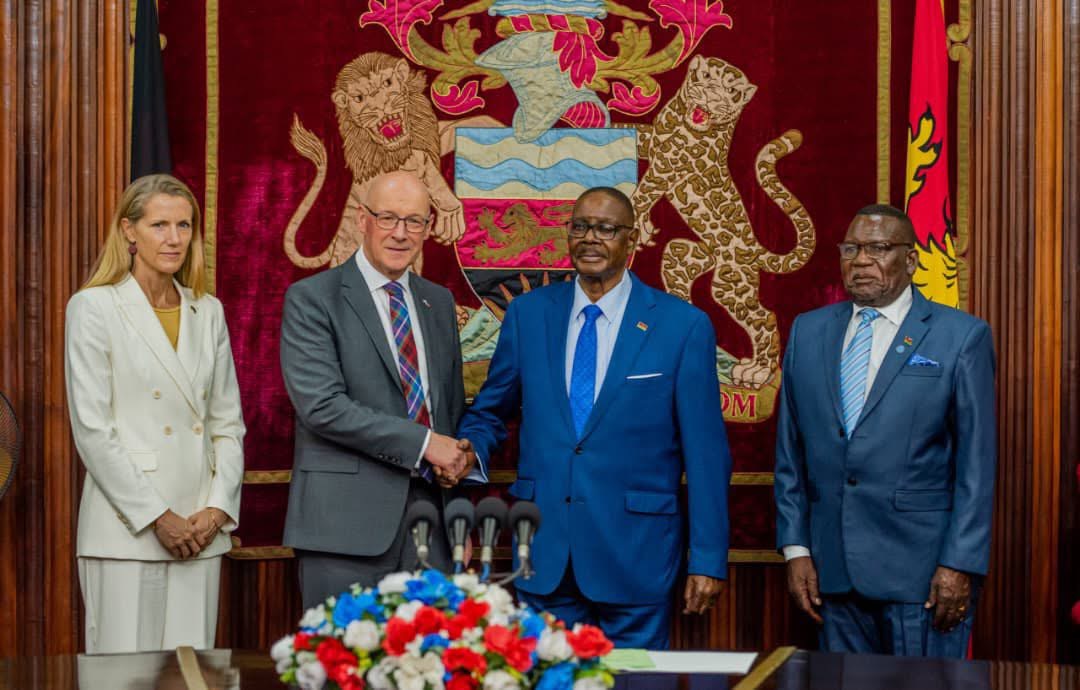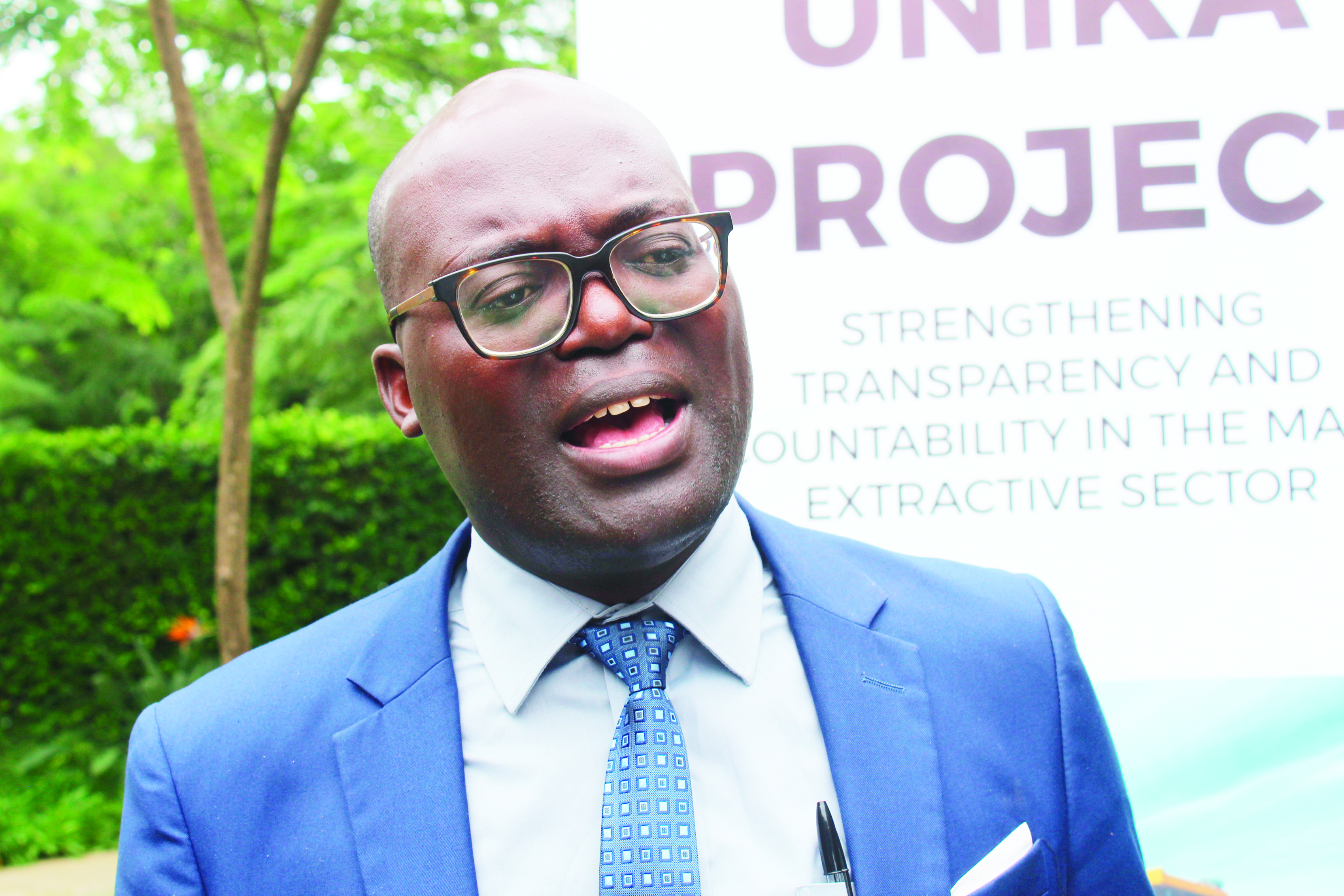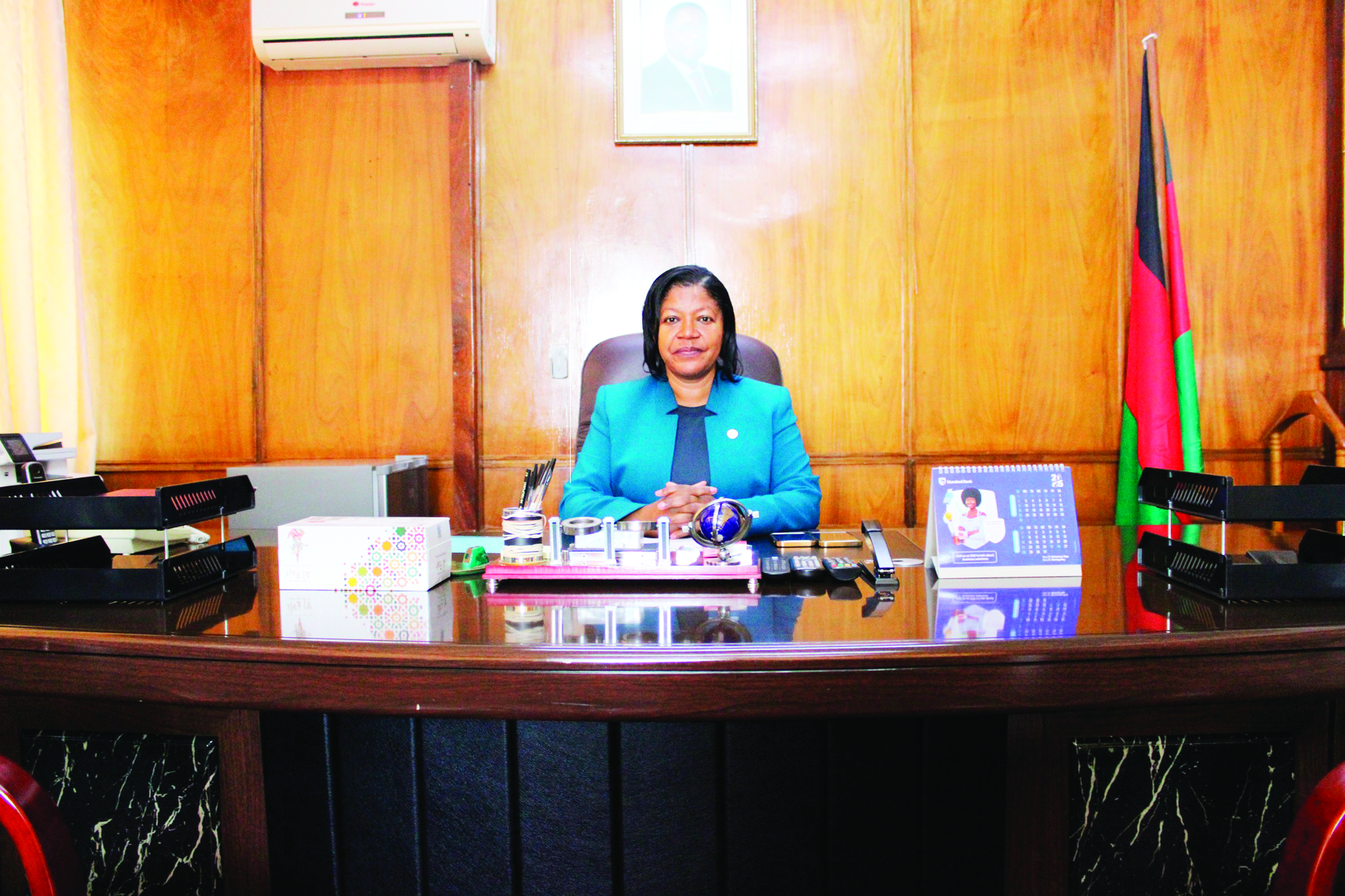



Mining
Stakeholders welcome new mining minister amidst mineral export ban





The Malawi Government is preparing to construct irrigation canals in the Lower Shire Valley Districts of Chikwawa and Nsanje.
The Ministry of Agriculture, Irrigation and Water Development says in a statement that the canals will be constructed as part of the Shire Valley Transformation Programme (SVTP) which it is implementing with financial support from the World Bank, African Development Bank and Global Environment Facility (GEf).
The Ministry says the Programme will develop 43, 370 hectares of the land for large scale irrigation in the two districts.
“As part of the SVTP, irrigation canals will be constructed to enable the conveyance of irrigation water from Kapichira Dam on the Shire River to targeted farming areas within the two districts,” says the Ministry.
As the construction of the irrigation canals will affect people’s land and property, the government is currently sorting out compensation issues to pave way for the civil works.
Though an agro-based economy, Malawi’s agricultural sector is dominated by smallholder farmers who mainly grow crops at a subsistence level.
Overreliance on rain-fed agriculture has resulted in perennial food shortages in the country due to climate change related causes such as drought and floods.
The government is, therefore, implementing SVTP to promote irrigated commercial farming and ensure food security for the nation, whose population stands at 17-million.
Construction works for the long awaited Mozambique – Malawi power interconnector are now ready to commence following the signing of the Implementation Agreement for a EUR 20-million grant that the European Union (EU) will provide for the project through German Development Bank (KfW).
Electricity Supply Corporation of Malawi (ESCOM) CEO Allexon Chiwaya penned the Agreement with officials of KfW.
“The signing of the agreement is an important milestone as it paves way for commencement of project implementation,” says Escom, EU, German Technical Cooperation (GIZ) and KFW in a joint statement.
Besides the EU support, the World Bank has earmarked US$ 15-million while the German Government through the KfW is contributing EUR 30-million to Mozambique’s power utility, EDM, for the construction works on the Mozambique side.
Through the 218 km long 400 kV transmission line, Malawi will start importing electricity from Mozambique and other Southern Africa Power Pool (SAPP) countries from 2023.
The statement reads: “The interconnector will see Malawi connecting to the SAPP for the first time since the nation became a member of SAPP in 1995 and expects the country to effectively upgrade its position from an observer to a fully operational member of SAPP.”
“The development will benefit the country as more clean energy will be supplied once the transmission line is functional.”
“The Increase and stabilization of power supply will significantly improve the access to clean energy for the private sector and consequently contribute towards sustainable economic growth.”
“Importantly, this clean energy will aid mitigation of climate change. As households will be supplied with adequate and reliable electricity each day, consumption of firewood and charcoal will be reduced.”
EU Ambassador to Malawi Sandra Paesen; German Ambassador to Malawi Juergen Borsch; and Senior Government of Malawi officials from both Ministry of Finance, Economic Planning and Development and; Ministry of Natural Resources, Energy and Mining witnessed the signing ceremony of the Agreement.
The Ambassadors bemoaned Government’s delays in the finalization of agreements with Independent Power Producers (IPPs) saying increased power availability and successful private investment in the energy sector attracts further investments in other sectors of the economy.
On the Malawi side, the interconnector will start at the 400 kV Phombeya substation in Balaka district and will traverse into Mozambique to connect to a new 400 kV Matambo substation in Tete province, in Mozambique.
The Consumers Association of Malawi (CAMA) has pleaded with the Business community to refrain from hiking prices of essential commodities and services in response to the recent fuel price hike.
Malawi Energy Regulatory Authority (MERA) announced new fuel prices last week, and petrol is now selling at K930 per litre from K868, representing a 7.14% increase while the price of diesel has increased with 5.72% as a litre now costs K924 from K874, while MERA maintained the price of Paraffin at K710 per litre.
MERA stated that it resolved to adjust the prices upon assessing recent trends in the world petroleum products prices and changes in other macroeconomic fundamentals in the local market and their impact on energy prices.
Among other factors MERA said “the average prices of Petrol, Diesel and Paraffin increased by 16.12%, 11.55% and 6.05%, respectively, when compared to the averages obtained in the month of December 2018 used in determining the ruling pump prices, and the last In Bond Landed Cost (IBLC) review in January 2019, when pump prices were last revised.
It also said the Malawi Kwacha slightly depreciated by 0.30% to K742.01/USD from K739.78/USD.”
“The Board also considered liquidity of Price Stabilisation Fund (PSF). Since the last price revision in January 2019, MERA has been using the PSF to cushion importation losses as Free On Board (FOB) prices remained higher than the prices used in December 2018 due to geo-political factors and Organisation of Petroleum Countries (OPEC) member countries’ decision to reduce production in support of oil prices,” said MERA in the statement.
Commenting on the development, CAMA Executive Director John Kapito, says it is unfortunate that government has little control over the incident as MERA has made the decision to allow importers recover importation costs directly as the PSF can no longer contain the difference between demand and actual landed cost of petroleum products.
However, Kapito argued that the business community including bus operators should not use the price hike as a token to skyrocket prices of essential commodities and services as a lot of Malawians are in financial problems.
“At the moment we cannot deny what the market requires to be done, but our appeal as consumer body is for business operators to restrain from raising prices as the current amendment is very mean hence has very little impact on prices of social amenities.” Kapito says.
MERA maintained the retail price for Liquefied Petroleum Gas (LPG) at MK1,744.75 despite the landed cost of LPG increasing by 8.42% as it resolved to apply the Price Stabilization Fund to cushion anticipated importation losses.
The Malawi Government has hiked the buying price of maize at all Agricultural Development and Marketing Corporation (Admarc) rural markets and depots from K150 to K250 per kilogramme. Secretary for the Ministry of Agriculture, Irrigation and Water Development Grey Nyandule-Phiri says in a statement that the move is aimed attaining national food security as it will attract more farmers stocking maize to sell to the parastatal. Nyandule-Phiri says the government has made the decision to hike the buying price for the staple food crop after noticing that there was a slow pace of inflows to Admarc implying that the previous buying price was not attractive to farmers. “Government has, therefore, revised the buying price to K250 per kilogram for all maize delivered to Admarc depots and K230 per kilogram for all maize delivered to Admarc rural markets,” he said. The Ministry has since given local farmers and traders two weeks to sell their maize to any Admarc markets and depots, and says it will seek importation of maize from suppliers identified outside the country if it fails to secure enough maize by November 25, 2019. The Malawi Government commissioned the Strategic Grain Reserve with the aim of stocking maize. Nyandule-Phiri says the arrangement has assisted in ensuring that the country has maize stocks in adequate quantities acquired through procurement by Admarc and National Food Reserve Agency.
The Malawi Government has hiked the buying price of maize at all Agricultural Development and Marketing Corporation (Admarc) rural markets and depots from K150 to K250 per kilogramme.
Secretary for the Ministry of Agriculture, Irrigation and Water Development Grey Nyandule-Phiri says in a statement that the move is aimed at attaining national food security as it will attract more farmers stocking maize to sell to the parastatal.
Nyandule-Phiri says the government has made the decision to hike the buying price for the staple food crop after noticing that there was a slow pace of inflows to Admarc implying that the previous buying price was not attractive to farmers.
“Government has, therefore, revised the buying price to K250 per kilogram for all maize delivered to Admarc depots and K230 per kilogram for all maize delivered to Admarc rural markets,” he said.
The Ministry has since given local farmers and traders two weeks to sell their maize to any Admarc markets and depots, and says it will seek importation of maize from suppliers identified outside the country if it fails to secure enough maize by November 25, 2019.
The Malawi Government commissioned the Strategic Grain Reserve with the aim of stocking maize.
Nyandule-Phiri says the arrangement has assisted in ensuring that the country has maize stocks in adequate quantities acquired through procurement by Admarc and National Food Reserve Agency.
The European Union (EU) Mission in Malawi has described the Mozambique-Malawi 400kV interconnector project as game-changer, saying it will link up Malawi’s energy grid to the regional electricity market of the Southern Africa Power Pool (SAPP) and facilitate trading as well as balancing of electricity among countries within the region.
EU Ambassador Sandra Paesan made the observation in a statement in which she hailed the ‘great things’ that happens when the EU and Malawi put their energy into joint projects.
Paesan said in partnership with KfW (the German Development Bank), the EU is supporting the Mozambique-Malawi 400kV interconnector project alongside other regional infrastructure initiatives aimed at boosting regional trade and economic growth.
Other initiatives that EU supports include the North-South M1 corridor in partnership with the European Investment Bank and the Nacala road corridor in partnership with African Development Bank.
She said currently lack of access to reliable power is preventing Malawi from realizing its full economic growth and development potential as businesses and people are affected by regular power cuts and high costs of power through diesel generators.
The ambassador noted that energy being one of the main drivers of inclusive and sustainable growth and jobs, Malawi needs reliable power supply if it were to achieve meaningful economic development.
In this vein, she explained that the interconnector project will provide Malawi’s business sector with more secure supply, which in turn will create an environment where business development can accelerate.
She also said having attained dependable power supply, there will be a multiply effect as growth in agricultural sector will benefit from new value chains that depend on a secure and affordable source of energy.
“A secure supply will further led to improved productivity as businesses will be in a position to operate uninterrupted while optimizing investments,” she said.
Paesan noted that Malawi’s energy infrastructure needs are quite substantial hence the need to attract private investment into the energy sector, particularly in renewable energy, to complement efforts from development partners.
She welcomed the initiative by the Malawi Government to procure 70MW of solar energy, saying it is in tandem with Africa-Europe Alliance and European External Investment Plan.
“Renewable Energy is the future and Malawi should fast-track the process of this initiative which started two years ago, so that the country realizes the benefits of such power investments,” she said.
The diplomat said European companies are ahead on the market when it comes to renewable energy investment and will be available to help Malawi in this respect.
“It is critical to continue our joint efforts to strengthen Malawi regional connectivity and infrastructure in view of supporting inclusive growth and development for all Malawians” said Paesen.
The EU recently organized a meeting with private firms in Blantyre, which discussed investment bottlenecks, including the prevailing energy woes.
attained dependable power supply, there will be a multiply effect as growth in agricultural sector will benefit from new value chains that depend on a secure and affordable source of energy.
“A secure supply will further led to improved productivity as businesses will be in a position to operate uninterrupted while optimizing investments,” she said.
Paesan noted that Malawi’s energy infrastructure needs are quite substantial hence the need to attract private investment into the energy sector, particularly in renewable energy, to complement efforts from development partners.
She welcomed the initiative by the Malawi Government to procure 70MW of solar energy, saying it is in tandem with Africa-Europe Alliance and European External Investment Plan.
“Renewable Energy is the future and Malawi should fast-track the process of this initiative which started two years ago, so that the country realizes the benefits of such power investments,” she said.
The diplomat said European companies are ahead on the market when it comes to renewable energy investment and will be available to help Malawi in this respect.
“It is critical to continue our joint efforts to strengthen Malawi regional connectivity and infrastructure in view of supporting inclusive growth and development for all Malawians” said Paesen.
The EU recently organized a meeting with private firms in Blantyre, which discussed investment bottlenecks, including the prevailing energy woes.
The Malawi Government is seeking to prequalify contractors for the construction of Mzuzu Youth Center and ancillary facilities at Katoto in Mzuzu city.
The Ministry of Youth, Sports and Culture says in a statement that the tender is open to local contractors currently registered in the unlimited category (building) of the National Construction Industry Council of Malawi (NCIC) and any interested international contractors that are registered in the equivalent category in their respective countries.
It says the pre-qualification questionnaire documents can be obtained at the ministry’s office at Capital Hill in Lilongwe or on its website (www.ppda.mw) from November 6 during working hours.
“The pre-qualification questionnaire document contains methods, criteria and factors that the Government of Malawi, referred to as procuring entity or employer shall use to evaluate and determine whether a contractor has the required qualification to effectively, efficiently, technically, economically and sustainably executive the said works in order for the employer to achieve the desired business objectives,” says the Ministry.
The deadline for submission of pre-qualification documents is December 9 at 15:00 hours local time.
“Interested contractors and/ or their representatives and members of the general public, may attend the opening of the bids at 15:00 hours local time on Monday November 9 2019 in the conference room of Ministry of Youth, Sports and Culture-Capital Hill in Lilongwe,” it says.
The Ministry is advising bidders to ensure that the documents are submitted in accordance with ‘The pre-qualification requirements’ in the documents, as non-compliance will lead to disqualification and rejection of the contractor.
The bids shall be valid for 30 days after bid opening.
The Competition and Fair Trading Commission(CFTC) says it is investigating cross-border bus operators; InterCape, Taqwa and Jobella Star bus company over allegations that they mistreat their customers.
CFTC says the investigations have been instituted following complaints the Commission has received from passengers and baggage transportation customers for the said cross-border bus operators.
The Fair Trading regulator says, among other concerns raised by the customers, the companies have been denying liability of customers’ goods lost or damaged on transit.
The customers have also reported the companies to the Commission against improper handling of passengers particularly not attending to their physical or health situations during the trips, which is contrary to section 43 of the Competition and Fair Trading Act.
Acting Executive Director for CFTC Martha Kaukonde says in an interview that the Commission is handling the cases in accordance with the Competition and Fair Trading Act (CFTA) and the Consumer Protection Act (CPA) which, among other things, prohibit suppliers of goods and services from engaging in unconscionable conduct.
She says: “We have received complaints from customers that their goods are pushed or piled without proper care, which results in the luggage being lost while fragile items get smashed, and the operators have demonstrated unwillingness to provide satisfactory assistance to the affected travelers when they have presented their complaints to their respective offices.”
“The conduct by the said bus companies appear to amount to a violation of Section 43 (1) (g) of the CFTA Act which states that “a person shall not, in relation to a consumer, engage in unconscionable conduct in the trade of goods and services.”
Kaukonde says “so far the commission has followed up on affected customers and former employees in a quest to unearth relevant evidence to present before the board of the Commission that will determine penalties for the companies if found guilty.
Meanwhile, CFTC is urging victims of such malpractices to present their concerns to the Commission in a bid to improve the customer service delivery of the buses.
There is a need for the country’s small-scale farmers to form cooperatives if they are to graduate from subsistence to commercial farming.
Registrar of Cooperatives in the Ministry of Industry, Trade and Tourism Wiskes Nkombezi said this atthe official launch of the Cooperative Development Activity 4 (CD4) project which is being implemented by US premier agribusiness company, Land O’Lakes, with funding from USAID to the tune of $1.7 million.
Nkombezi said: “The Government of Malawi is encouraging farmers to come together, through cooperatives and pursue farming as a business; the CD4 comes in as a part player, joining the Government of Malawi and other development partners to further this agenda”.
He expressed gratitude towards development partners who are taking part in strengthening farmer based organizations saying it would be difficult for the government to succeed in the project without their support.
“Collaboration is very important. Therefore, I take this opportunity to request all partners present today to synergize your efforts, as we all continue to contribute to the development and growth of the Cooperative Movement in Malawi. We will achieve the goal of sustainable economic growth and poverty reduction if we continue working together”, Nkombezi said.
The CD4 aims to improve the cooperative enabling environment by strengthening apex organizations and by promoting a Cooperative Learning Platform, enhance cooperative business performance through tailored technical assistance and to advance development communities support for cooperatives through supporting research in cooperatives and disseminate findings through both local and global channels.
Nkombezisaid the project is important to strengthen cooperatives as some collapse due tolack of knowledge on how to run them as business enterprises.
“Cooperatives need technical capacity strengthening to support their sustainability and growth. If cooperatives are strengthened in aspects of business operations, they are empowered to make sound business decisions which in turn enhances their growth,” Nkombezi said.
In his remarks, USAID Office Director Cullen Hughes said CD4 has come in at an opportune time when Malawi government and development partners are strategizing on the implementation of the National Agricultural Policy (NAP).
NAP emphasizes on developmentof farmer organizations as a key intervention for driving Malawi’s agricultural development.
“In response to the need for strong farmer organizations in the operationalization of the NAP, the Department of Agricultural Extension Services has developed a strategy for farmer organization development to which the program being launched today is closely aligned,” he said.
Agriculture remains the driving force of Malawi’s economy contributing approximately one third of the country’s Gross Domestic Product (GDP) and nearly 80%of export revenue.
The Malawi Government has secured funds from the African Development Bank (AfDB) to kick-start the 53km Mangochi-Chiponde (M3) road rehabilitation project.
The Roads Authority (RA) is, meanwhile, inviting consulting firms to undertake engineering studies including a feasibility study and detailed engineering designfor the project.
Procurement Specialist for RAMoses Malinda says in a press release that the consultancy assignment is expected to be executed in 46 weeks.
“Interested consultants must provide information indicating that they are qualified to perform the services (brochures, description of similar assignments, experience in similar conditions, availability of appropriate skills among staff etc.),” Malinda explains.
He says consultants can also form joint-ventures to enhance their chances.
Malinda says RA will apply shortlisting and selection procedures stipulated in the AfDB’s ‘Rules and Procedures for the Use of Consultants’ of 2016.
He says: “Interested consultants may obtain further information at our website or physically contact us during office hours from 08:00to 16:00hrs local time from October 8th to 23rd, 2019 with clear indication of the bid title.”
The Mangochi-Chiponde road project is under the Multinational Nacala Road Corridor Development Project Phase V.
RA is a quasi-government body which was established by an Act of Parliament in year 2006 with a mandate to ensure that public roads are constructed, maintained and rehabilitated at all times.